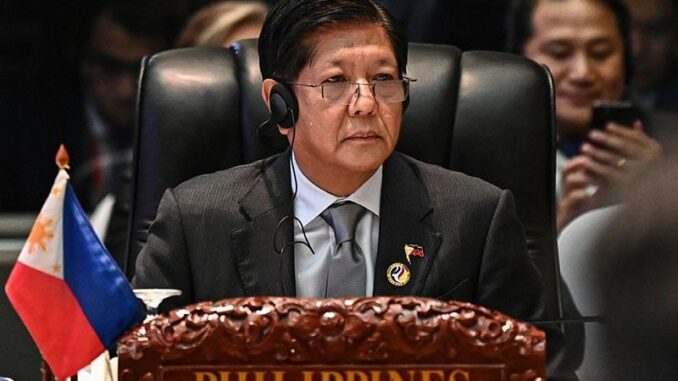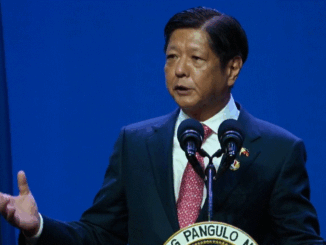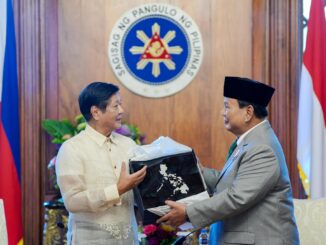
MANILA, Philippines — President Ferdinand Marcos Jr. raised the country’s escalating maritime conflict with China on Thursday, October 10, at a high-level sit-down with Chinese Premier Li Qiang and other Southeast Asian leaders.
Marcos, in a thinly-veiled message aimed at China, lamented the continued escalation of tensions South China Sea during the Association of Southeast Asian Nations (ASEAN)’s meeting with Li.
Marcos raised the issue during a meeting that centered on trade relations, saying: “You cannot separate economic cooperation from political security,” according to an AFP report that quotes an unnamed Southeast Asian diplomat who attended the meeting.
A Kyodo News report quotes Marcos as saying: “We continue to be subjected to harassment and intimidation… Parties must be earnestly open to seriously managing the differences and to reduce tensions.”
China continues to assert its claims over nearly the entire South China Sea, defying a 2016 ruling by the Permanent Court of Arbitration that declared its claims have no legal basis. The landmark ruling upheld the Philippines’ maritime rights but has done little to curb Beijing’s actions in the contested waters.
Alongside China and the Philippines, Vietnam, Taiwan, Malaysia and Brunei also stake competing claims over the vital waterway, which remains a flashpoint for territorial disputes in the region.
Amid the Philippines and China’s deadlock over their maritime issues, Marcos also urged the bloc to speed up the creation of a regional code of conduct.
Negotiations for the long-sought pact to prevent confrontations in the disputed waters have repeatedly stalled over the years. Observers believe China is actively thwarting its progress as it seeks to reclaim strategic parts of the contested waters.
Marcos said several issues on the code of conduct remain unresolved, namely “milestone issues of geographic scope, the relationship between the COC and DOC, and its legal nature to this day.”
China’s aggression and intimidation “demonstrates the continued disregard of international law and standards, particularly UNCLOS and the 1972 Convention on the International Regulations for Preventing Collisions at Sea.”
“Such behavior is not unnoticed by our respective publics and the international community as well. That they will require a concerted and urgent effort to adopt measures to prevent their recurrence,” Marcos said.





Be the first to comment